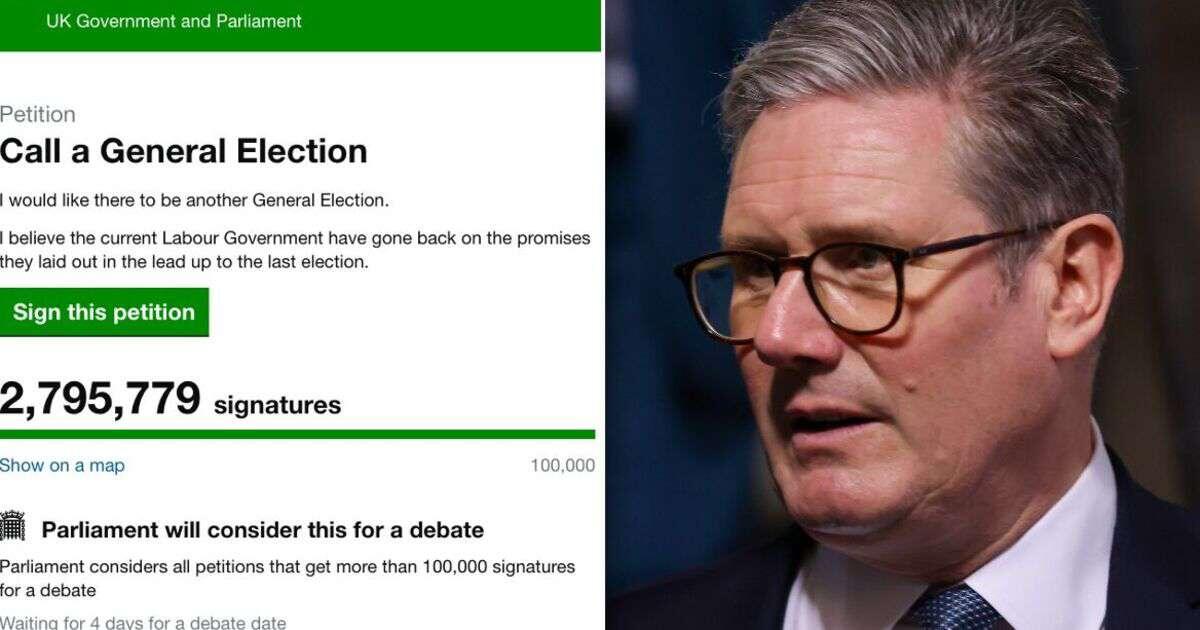Kryptix on Nostr: Forced Election?! ...
Forced Election?!

In the UK, it is very difficult to force a general election outside of the normal mechanisms without the agreement of the governing party or significant parliamentary support. Here are the main ways an early election could theoretically be forced:
1. Parliamentary Vote: Under the Dissolution and Calling of Parliament Act 2022, the Prime Minister can request a general election with the monarch's approval. This is the most straightforward method, but it relies entirely on the Prime Minister's willingness.
2. No-Confidence Motion: Parliament can pass a vote of no confidence in the government. If the government cannot regain confidence within 14 days, a general election must be called. However, this would require members of the ruling party to rebel or opposition parties to unite—a challenging scenario given Labour's current majority.
3. Judicial or Constitutional Challenge: While rare, extraordinary legal challenges or constitutional crises could hypothetically prompt a shift. However, the UK's uncodified constitution and parliamentary sovereignty make this pathway unlikely to succeed unless legal wrongdoing is established.
4. Public Pressure: Massive public protests or growing dissent within the Labour Party could pressure leadership, but public sentiment alone does not legally compel an election.
Ultimately, while the petition demonstrates significant discontent, forcing an election against the Prime Minister’s will or Labour’s majority in Parliament would be exceptionally difficult under the current framework.
#petition #generalelection #keirstarmer #fascism #authoritarianism #history #bitcoin #nostr #anarchyⒶ

In the UK, it is very difficult to force a general election outside of the normal mechanisms without the agreement of the governing party or significant parliamentary support. Here are the main ways an early election could theoretically be forced:
1. Parliamentary Vote: Under the Dissolution and Calling of Parliament Act 2022, the Prime Minister can request a general election with the monarch's approval. This is the most straightforward method, but it relies entirely on the Prime Minister's willingness.
2. No-Confidence Motion: Parliament can pass a vote of no confidence in the government. If the government cannot regain confidence within 14 days, a general election must be called. However, this would require members of the ruling party to rebel or opposition parties to unite—a challenging scenario given Labour's current majority.
3. Judicial or Constitutional Challenge: While rare, extraordinary legal challenges or constitutional crises could hypothetically prompt a shift. However, the UK's uncodified constitution and parliamentary sovereignty make this pathway unlikely to succeed unless legal wrongdoing is established.
4. Public Pressure: Massive public protests or growing dissent within the Labour Party could pressure leadership, but public sentiment alone does not legally compel an election.
Ultimately, while the petition demonstrates significant discontent, forcing an election against the Prime Minister’s will or Labour’s majority in Parliament would be exceptionally difficult under the current framework.
#petition #generalelection #keirstarmer #fascism #authoritarianism #history #bitcoin #nostr #anarchyⒶ
